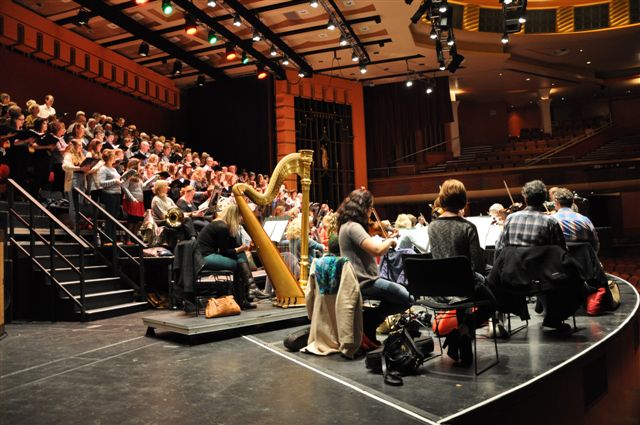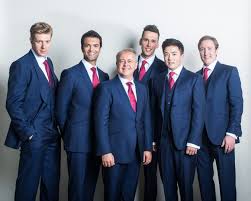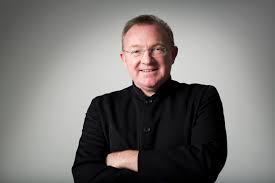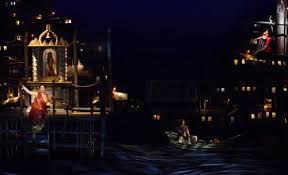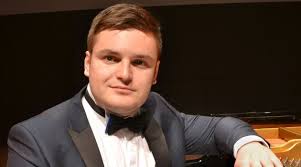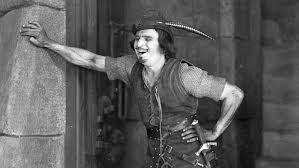Britten; The Rape of Lucretia
Glyndebourne Festival Opera
OPUS ARTE OA 1219 D
Britten’s opera was given its premiere at Glyndebourne seventy years ago and this new staging is a tribute to its continuing impact as a great work, as well as to the intimacy and sensitivity of the staging. The modern setting works well and Allen Clayton and Kate Royal are particularly effective as the Chorus who form the link between ourselves and the action. Christine Rice is a vulnerable Lucretia in Fiona Shaw’s intelligent production.
Glinka: Ruslan and Lyudmila
Bolshoi Theatre Orchestra and Chorus, Vladimir Jurowski
BELAIR BAC 120
For a work so familiar from its overture it is surprising that it is so rarely staged. This fine new recording, in an evocative and visually impressive production by Dmitri Tcherniakov, goes some way to explain why it might be such a rarity. It is very long. What is more, the score often repeats itself, with soloists given an extra verse or two where fewer may have been more effective. The production is well sung under Vladimir Jurowski and the Wagnerian parallels are enhanced by the staging. Worth following up.
Cav & Pag
Royal Opera House, Antonio Pappano
OPUS ARTE OA 1210 D
I really enjoyed this production by Damiano Michieletto. He links the two works together without forcing the narrative lines. In both operas the intermezzi are used to bring us characters from the other opera, most effectively in Pag where we see Santuzza and Mamma Lucia reconciled and turning positively to the birth of the baby. It serves to link the people of the village without forcing them into a single story. Aleksandrs Antonenko is strongly cast as both Turiddu and Canio, but there are no weaknesses in a highly compelling staging, driven from the pit by Antonio Pappano at his most romantic.
Antoine-Esprit Blanchard: Magnificat a la Chapelle Royale
Les Passions, Jean-Marc Andrieu
LIGIA Lidi 0202313-16
Jean-Marc Andrieu has been working on the scores of Antoine-Esprit Blanchard for thirty years now and this is the latest of his re-discoveries. Three motets are recorded here – Magnificat, De Profundis and In exitu Israel. In 1738 Blanchard was made music master to the Chapelle Royale, having been born in central France in 1696, and got to Paris by a highly circuitous route. Two of the motets are recorded here for the first time and are given with the professional skill and excitement we have come to expect from the group who brought us such thrilling recordings of Jean Gilles. There is a detailed booklet together with the CD and the full text of the motets.
More details of Les Passions and CD purchase available from www.les-passions.fr
Chopin Mazurkas
Pavel Kolenikov, piano
HYPERION CDA 68137
Pavel Kolenikov was one of the BBC New Generation Artists 2014-16 and this recording adds to the many fine performances he has already given. Elegance is not a word often used of performers today but it certainly suits his approach to Chopin, which has a delicacy, an intimacy which reflects the domestic potential of the works as well as their more obvious place in the concert hall. Let us hope we will hear a lot more from him both on stage and in the recording studio.
Celtic Airs
Barry Douglas, piano with ensemble
CHANDOS CHAN 10934
This might not appear to be an obvious ‘classical’ choice but it is a fascinating cross over. Barry Douglas is joined by Irish flute and penny-whistle, Scottish harp and Shetland fiddle, for a collection of Celtic music. Some of it is played straight and other items are used as the basis for improvisation and embellishment . it is easy on the ear but also reflects a high level of professionalism.
Haydn: Sun Quartets
Chiaroscuro Quartet
BIS 2158
I enjoyed Tom Service’s notes in which he is effectively doing himself out of job – arguing that we should not read the notes but simply listen to the music. And one can see what he means for these are delightful renditions of delightful music. Just enjoy!
Fritz Wunderlich; Festive Arias
SWR 19026CD
For those of us old enough to remember Fritz Wunderlich this is a wonderful disc of the singer at his best. While the Bach and Schutz items are familiar, it is the recording of ten pieces from Handel’s Messiah which are of particular interest as they are sung in German, which is interestingly challenging for those of us who know it so well in English. The recordings were made between 1955-59 though they do not sound their age.
Beethoven: Piano Sonatas
Steven Osborne
HYPERION CDA 68073
The three sonatas included here are the Hammerklavier Op106, the Op101 in A major and Op90 in E minor. For some reason, that is not quite clear, they are presented in reverse order to that in which they were written, even when the liner notes point out how well they work if played as a set of three in correct order! None of this affects the quality of the playing which has both subtlety and clarity of texture throughout. This is the third Beethoven disc from Steven Osborne and we can surely hope for more.
J S Bach: Goldberg Variations
Angela Hewitt, piano
HYPERION CDA 68146
This is clearly marked 2015 recording to distinguish it from Angela Hewitt’s first recording in 2000. The work itself, as she tells us in an extended article in the accompanying notes, is an essential part of her musical life and has been with her at key moments. She is particularly concerned at its intimacy and potential to make the most impact where the audience is smallest. Better still, the version we hear is a single take, not a patch-work of edits. That reality shines through in a remarkable performance which gets to the heart of the work, communicating with ease, and with a flow that seems effortless.
BH
THE YOUNG J.S. BACH
Andrew Arthur, Carsen Lund organ, Trinity Hall, Cambridge
PRIORY PRCD 1176 (2CDs) 155’31
This welcome release presents the ‘Neumeister chorales’ in lovely performances to celebrate the 10th anniversary of the inauguration of this organ. Providing added variety this well-structured 2 CD release places a number of other contrasting works to punctuate the collection.
THE COMPLETE ORGAN WORKS OF THOMAS TERTIUS NOBLE Volume 2
John Scott Whiteley, organ of York Minster
PRIORY PRCD 1129
The second volume of this project includes a number of hymn preludes based on well-known tunes (Melcombe, Dominus regit me, Stracathro, Walsall, Picardy) as well as the Sonata in A and Introduction & Fugue in F minor. The CD opens with Toccata & Fugue in F minor. John Scott Whiteley obviously has a great affinity with this music and uses his experience of this organ to the full.
MALCOLM WILLIAMSON ORGAN MUSIC
Tom Winpenny, organ, St John the Evangelist, Duncan Terrace, London
NAXOS 8.571375-76 (2 CDs) 99’22
The music of Malcolm Williamson is ripe for rediscovery as this collection of some of his organ works from the late 1950s to the mid ‘70s shows. This is not a complete survey, with several of the more well-known titles missing. However, what is included is lovingly brought back to life by Tom Winpenny, who is developing his reputation as an advocate of twentieth century repertoire. Shorter pieces include Epitaths for Edith Sitwell and Elegy-JFK. More lengthy works are the fascinating Peace Pieces, Little Carols of the Saints and Mass of a Medieval Saint. A wonderful release.
FITZWILLIAM VIRGINAL BOOK EXCERPTS
Ton Koopman, cembalo/ harpsichord
CAPRICCIO ENCORE C8002
This is an enjoyable collection of a selection of pieces from the Fitzwilliam book. It could serve as an excellent introduction to the delights of the keyboard repertoire of this era or purely as an entertaining listening experience. The recordings are some years old but Ton Koopman’s mastery of the keyboard shines through.
STILL, O HIMMEL – Christmas Carols by Joseph Haas & his contemporaries
Muncher Frauenchor & Munchen Madchenchor
directed by Katrin Wende-Ehmer, organist Norbert Duchtei
TYZart CHROMART CLASSICS TXA15070 77’00
This recording of German Christmas carols by the Munich Ladies’ & Girls’ choirs gives an insight into music that was largely unknown to me. The first part of the CD consists of extracts from Haas’ Christmas oratorio, Christnacht, which draws on Bavarian and Tyrolean folk melodies. Alongside this are carols by Rheinberger and Reger, as well as less familiar names including Erna Woll and Christian Lahusen. A welcome alternative for the Christmas season.
DICH MARIA HEUT ZU PREISEN – The most beautiful compositions in praise of the Virgin Mary by South German and Italian masters of the 18th & 19th centuries
MECHTHILD KEINDL, soprano, ANNE DUFRESNE, oboe, NORBERT DUCHTEL, organ
TYZart CHROMART CLASSICS TXA15069 71’00
Works by Rheinberger, Reger, Konigsperger and others form an interesting and varied programme.
SP


